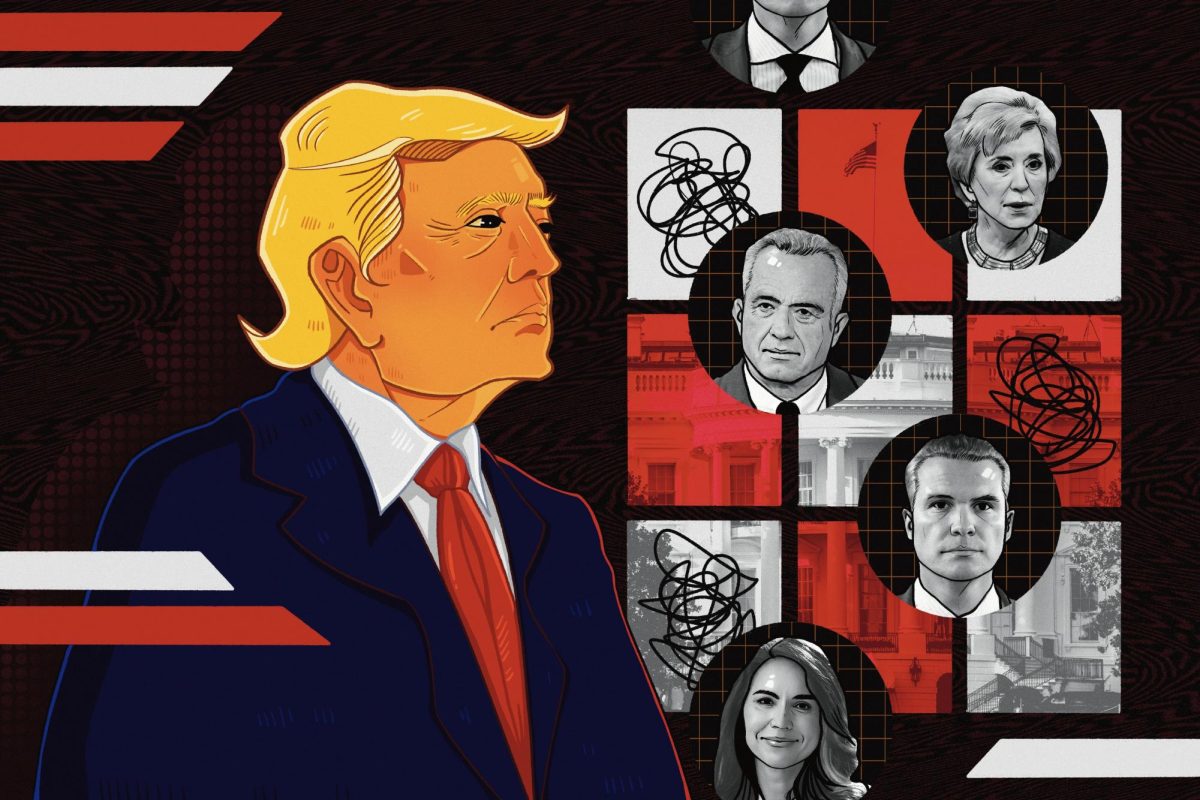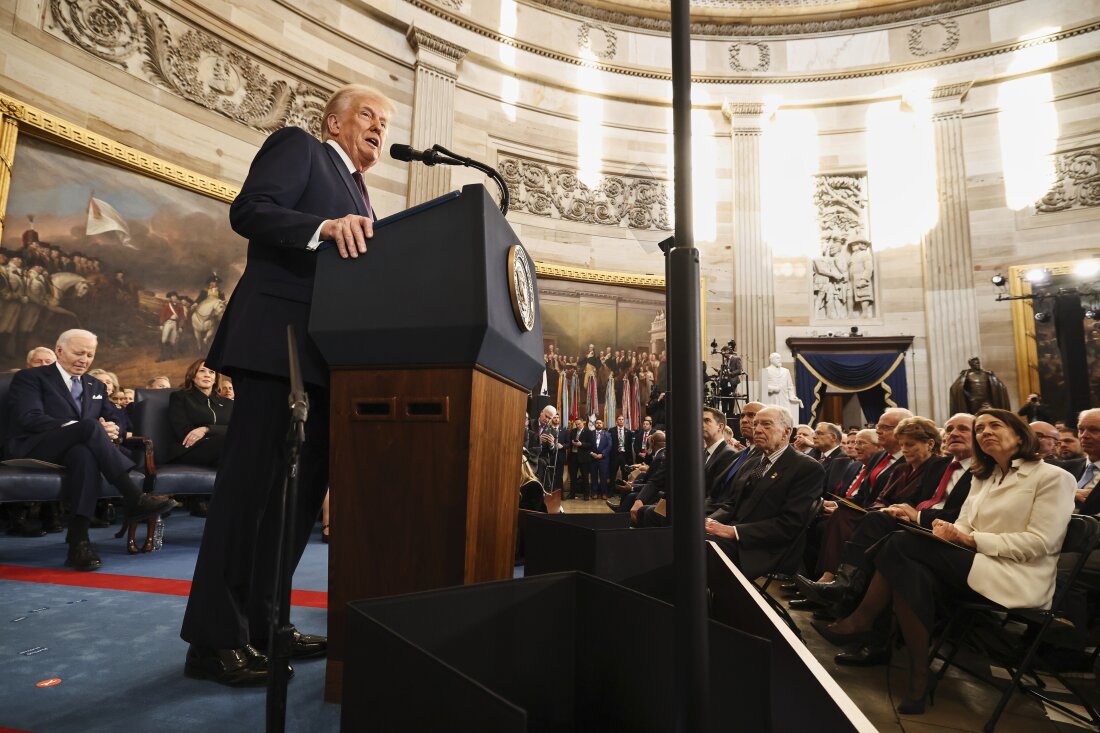After Donald Trump’s decisive victory in the 2024 presidential election, we are once again faced with the specter of various cabinet appointments. This transition period has been host to an ongoing battle within the Republican Party between establishment members and pro-Trump MAGA loyalists for executive positions. While some picks are distressing, there are others that leave room for optimism, such as Sen. Marco Rubio (R-Fla.), Dr. Jay Bhattacharya, Elon Musk, and Vivek Ramaswamy.
The selection of Rubio is a more sensible choice compared to most of the MAGA wing within the Republican Party because he is a moderate Republican and an institutionalist. Elite liberals and never-Trump Republicans were apprehensive of another Trump presidency for many reasons, not the least of which is geopolitics, fearing that Trump would disregard western imperial norms and side with Russia in its war against Ukraine. Trump was able to tamp down some of these fears with the selection of Rubio for secretary of state.
During Rubio’s tenure in the Senate, he has been able to work across the aisle to secure bipartisan initiatives. This includes working with Sen. Tim Kaine (D-Va.) to ensure that presidents are unable to unilaterally withdraw the U.S. from NATO. It is extremely likely that Rubio will be confirmed for the position, as even Democratic senators like Cory Booker (N.J.) and Mark Kelly (Ariz.) are happy with Trump’s pick.
Two other potential bright spots within a sea of darkness in the upcoming Trump administration include Vivek Ramaswamy and Elon Musk. They outlined their vision for the new Department of Government Efficiency in a joint opinion column for The Wall Street Journal, emphasizing that the Pentagon “recently failed its seventh consecutive audit.”
Cutting the federal bureaucracy down and making it more efficient and less invasive to businesses can be very beneficial for the free market. Ramaswamy and Musk reveal that many unelected bureaucrats have “little idea how its annual budget of more than $800 billion is spent” in their statement. The two plan to conduct large-scale audits on government agencies through DOGE to “identify the minimum number of employees required” for it to still perform its “statutorily mandated functions.”
In principle, this is a good idea, but the danger of excessively slashing bureaucratic oversight in agencies like the Environmental Protection Agency and the Food and Drug Administration looms. It remains to be seen where they focus their attention and whether their efforts will end up being a net positive.
If Ramaswamy and Musk don’t fulfill their promises to cut down on wasteful government spending — but instead create loopholes for big business and enable corporate greed — then their efforts might backfire. If they don’t properly audit annual budgets like the Pentagon, then their legacies in government will be tainted by the exacerbation of the very inefficiencies they vowed to eliminate.
The pressure is on Musk and Ramaswamy to prove that their vision for government efficiency is more than just rhetoric. It is imperative they demonstrate through measurable results that they can deliver meaningful reform.
The most promising selection in the next Trump cabinet is Dr. Jay Bhattacharya for the director of the National Institutes of Health. Bhattacharya is a physician and professor at Stanford University Medical School. Back in October 2020, he was one of three key writers of the Great Barrington Declaration, which criticized COVID-19 lockdowns. He argued that it is important for youth to build up herd immunity and was an early advocate for re-opening and reconvening schools, restaurants, businesses, sports and “other cultural activities.”
By Oct. 2020, I personally stopped believing in the efficacy of lockdowns. While recommending those to wear a mask and get vaccinated is one thing, I believe that the stance most prominent epidemiologists took at the time was too extreme. It was refreshing to witness a medical expert push back against the epidemiologists who advocated for locking down businesses and schools to slow the spread of COVID-19. These lockdowns, which many public health experts advocated for, caused the “permanent closure of roughly 200,000” businesses and a tremendous amount of learning loss for students.
Bhattacharya’s appointment to lead the NIH introduces a level-headed, credentialed voice to health policy, providing a much needed counterbalance to the extreme, unqualified figures in Trump’s orbit, such as Trump’s appointment of Robert F. Kennedy Jr. for secretary of health and human services. Unlike RKF Jr., Bhattacharya doesn’t engage in crazy conspiracy theories like claiming that AIDS is not caused by HIV or that the coronavirus “is targeted to attack Caucasians and Black people” because the “people who are most immune are Ashkenazi Jews and Chinese.”
Trump’s victory was a green light from American voters to shake up the system. Many who did not vote for him, including me, are anxious about the thought of a second Trump term. With fewer guardrails this time around, America is entering uncharted territory. However, this is not the time for despair; some of these appointments are reasons to be cautiously optimistic.
Choices like Rubio, Ramaswamy and Musk, and Bhattacharya suggest that a second Trump administration may not follow the trajectory of my worst fears. That said, the success of this administration will ultimately hinge on its ability to fulfill its promises.






















